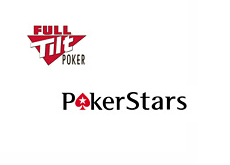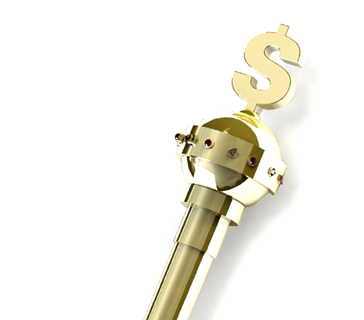UIGEA Continues to Wreak Havoc on Poker World
Published on October 13th, 2011 12:00 am EST On October 13th, 2006, President George W. Bush signed the SAFE Port Act into law.
On October 13th, 2006, President George W. Bush signed the SAFE Port Act into law.The SAFE Port Act "improved maritime and cargo security through enhanced layered defences", amongst other things.
Unfortunately for the poker community in the United States (and the rest of the world, it would turn out), the SAFE Port Act also included the Unlawful Internet Gambling Enforcement Act of 2006, aka UIGEA.
Various politicans in Washington had seemingly made it their life mission to try and stop online gambling in the United States, but they had been largely unsuccessful up until the fall of 2006. This is when the UIGEA was inserted into the SAFE Port Act at the last moment, and the online gambling industry was forever changed.
The SAFE Port Act was a must-pass piece of legislation, so it easily sailed through the House (421-2) and the Senate (98-0). On October 13th, 2006, George W. Bush signed the bill into law.
Just days earlier, American poker players had had the option of playing on Party Poker, Full Tilt Poker and Pokerstars. Those were the days.
Shortly after the SAFE Port Act sailed through the US House and Senate, a number of major online poker rooms announced that they were pulling out of the US market. Party Poker, which was the world's largest online poker room at the time, announced its intentions to pull out of the US market on October 2nd, 2006. Shares of PartyGaming (as it was known at the time) dropped over 50% that day.
Since PartyGaming had gone public just a few short months earlier, they really had no choice but to pull out of the US market. Pokerstars and Full Tilt Poker, on the other hand, were both privately held companies. Poker players in the US waited anxiously as executives from Pokerstars and Full Tilt Poker decided whether or not they should remain in the US market.
In the end, both Full Tilt Poker and Pokerstars elected to remain in the US market. Both rooms enjoyed a massive surge in market share and popularity at the expense of rooms such as Party Poker. The influx of new players allowed Pokerstars and Full Tilt to expand their marketing budgets considerably, which in turn led to even more new players. Pokerstars and Full Tilt grew in leaps and bounds, leaving former giants like Party Poker far behind.
Both Pokerstars and Full Tilt Poker decided that the rewards outweighed the risks when it came to continuing to serve US clients. The profits were ridiculous (look at how much Full Tilt's shareholders were paid out from April 2007 to April 2011), but they were major risks involved as well. Thumbing your nose at the United States Department of Justice is usually not a very smart idea.
On April 15th, 2011, the party stopped for Pokerstars, Full Tilt Poker and UB/AP. The US Department of Justice dropped the hammer on the sites, alleging that Pokerstars/Full Tilt/UB/AP had violated the UIGEA, amongst other things. All of the sites are still facing civil suits that will likely cost hundreds of millions of dollars to settle.
Pokerstars was able to quickly bounce back after "Black Friday", but Full Tilt Poker and UB/AP were both basically destroyed. Full Tilt Poker had its doors shuttered in late June, and remains closed to this day, with hundreds of millions of dollars owed to players across the world.
It's the five year anniversary of the UIGEA, a piece of legislation that continues to significantly impact the poker world to this day.
--
Filed Under: UIGEA




